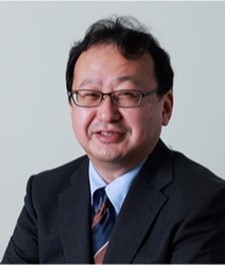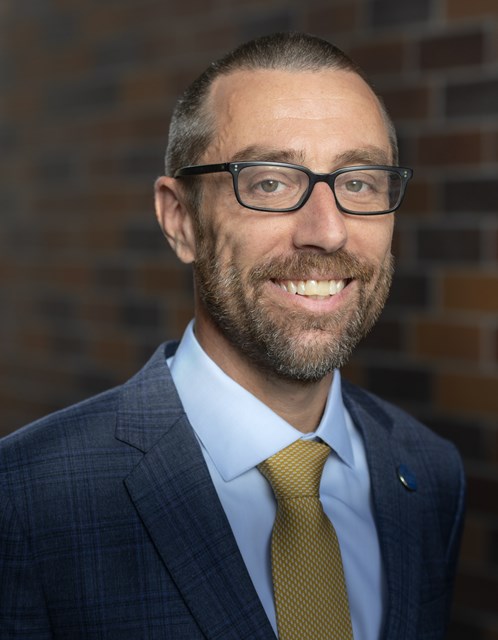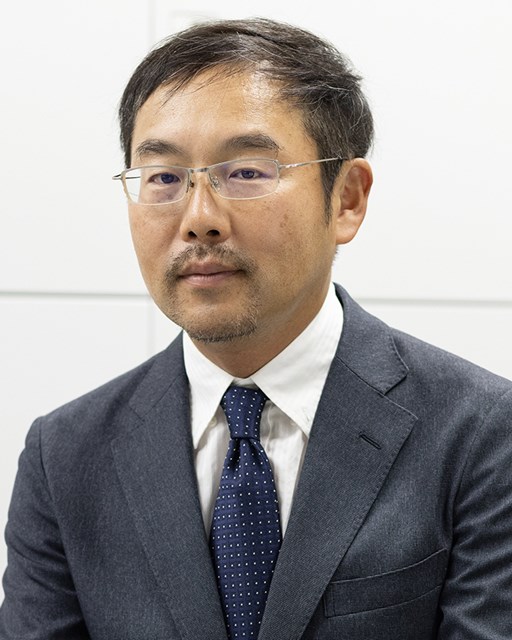
Plenary Talk 1
"“Century of light” pioneered by invisible light"
Professor Takeshi Yasui
Institute of Post-LED Photonics (pLED), Tokushima University, Japan

AbstractThe 21st century is often referred to as the “Century of Light”; however, it does not mean that the light has been used up. In particular, the invisible light, such as “ultraviolet light”, “infrared light”, and “terahertz light”, has different characteristics from “visible light” and therefore has even greater potential. Such invisible light has a potential to lead to the creation of photonic innovations that are essentially different from the past. In this presentation, I will introduce a potential of the invisible light.
Bio Takeshi Yasui received the first Ph.D. degree in engineering from the University of Tokushima, Tokushima, Japan, in 1997, and the second Ph.D. degree in medical science from the Nara Medical University, Yagi, Japan, in 2013. From 1997 to 1999, he worked as a Post-Doctoral Research Fellow in the National Research Laboratory of Metrology, Japan. He was with the Graduate School of Engineering Science, Osaka University from 1999 to 2010, and was briefly with the University of Bordeaux I in 2007 and 2012, and with the University of Littoral Côted'Opale in 2010 as an Invited Professor. He is currently a Chief Research Officer (CRO) and a Professor in the Institute of Post-LED Photonics, Tokushima University, Tokushima, Japan, Vice Director of Research Organization in the same university since 2016, and an Invited Professor in the Graduate School of Engineering Science, Osaka University, Toyonaka, Japan. His research interests include THz instrumentation and metrology, second-harmonic-generation microscopy, and optical frequency comb. Prof. Yasui is a member of the Optical Society (OSA), The International Society for Optical Engineering (SPIE), the Japan Society of Applied Physics, the Optical Society of Japan, the Laser Society of Japan, the Japanese Society for Medical and Biological Engineering, and the Japan Society of Mechanical Engineers. He received the Award for the Most Promising Young Scientist from the Optical Society of Japan in 1998, the Sakamoto Award from the Japan Society of Medical Electronics and Biological Engineering in 2006, the Optics Paper Award from the Japan Society of Applied Physics, and the Funai Award from the Japan Society of Mechanical Engineers in 2009, the Original Paper Award from the Laser Society of Japan in 2013.
Plenary Talk 2
"Mutualistic Interactions in Heterogeneous Multi-Robot Systems"
Professor Magnus Egerstedt
University of California, Irvine
President of IEEE CSS

Abstract The typical approach to multi-robot systems is to divide the team-level tasks into suitable building blocks and have the robots solve their respective subtasks in a coordinated manner. However, by bringing together robots with different capabilities, it should be possible to arrive at completely new capabilities and skill-sets. In other words, the whole becomes greater than the sum of its parts. In this talk, we will formalize this idea through the composition of barrier functions for encoding the collaborative arrangements in terms of expanding and contracting the reachable and safe sets. Inspired by the ecological concept of a mutualism, i.e., the interaction between two or more species that benefit everyone involved, the formalism is contextualized in a long-duration setting, i.e., for robots deployed over long time scales where optimality have to take a backseat to “survivability”.
Bio Dr. Magnus Egerstedt is the Dean of Engineering and a Professor in the Department of Electrical Engineering and Computer Science at the University of California, Irvine. Prior to joining UCI, Egerstedt was on the faculty at the Georgia Institute of Technology. He received the M.S. degree in Engineering Physics and the Ph.D. degree in Applied Mathematics from the Royal Institute of Technology, Stockholm, Sweden, the B.A. degree in Philosophy from Stockholm University, and was a Postdoctoral Scholar at Harvard University. Dr. Egerstedt conducts research in the areas of control theory and robotics, with particular focus on control and coordination of multi-robot systems. Magnus Egerstedt is a Fellow of IEEE and IFAC, a Foreign member of the Royal Swedish Academy of Engineering Science, and currently serves as the President of the IEEE Control Systems Society. He has received a number of teaching and research awards, including the Ragazzini Award, the O. Hugo Schuck Best Paper Award, and the Alumni of the Year Award from the Royal Institute of Technology.
Plenary Talk 3
"Integration of data-driven and model-based approaches via latent variables"
Professor Takehisa Yairi
The University of Tokyo

Abstract Machine learning and control engineering have evolved over years, mutually influencing each other. Through the history of their interaction, there has been a debate over whether to prioritize models or data. Especially in the last decade, influenced by the success of deep learning, data-driven approaches have gained significant importance in control engineering, as in many other fields. On the other hand, it is interesting to note that in machine learning, there has been a growing interest in embedding physics into machine learning models instead of relying on expensive big data. These trends imply that it is more important to integrate models and data, rather than choosing between them. The speaker believes that the key to achieving the integration of both is extracting low-dimensional latent spaces from the high-dimensional observations of the real-world systems and capturing the dynamics of the systems in the latent spaces. Therefore, in this talk, I will focus on the concept of 'latent space' and review the studies on learning dynamical systems, a common topic in both fields. Additionally, I will present case studies on simultaneous estimation of state/models, reinforcement learning, residual life prediction, and other related research based on this concept.
Bio Takehisa Yairi is currently a professor at the Research Center for Advanced Science and Technology (RCAST) and the School of Engineering of the University of Tokyo. He received his B.Eng., M.Eng., and Ph.D. degrees in aerospace engineering from the University of Tokyo, Japan in 1994, 1996, and 1999 respectively. His research interests include anomaly detection, health monitoring, fault diagnosis, learning dynamical systems, nonlinear dimensionality reduction, as well as applications of machine learning and probabilistic inference to aerospace systems. He received the best paper award from the Japanese Society of Artificial Intelligence (JSAI) multiple times in 1999, 2008 and 2011. He served as the general chair of the 4th Asia Pacific Conference of the Prognostics and Health Management Society (PHMAP), which was held for the first time in Japan in 2023.


